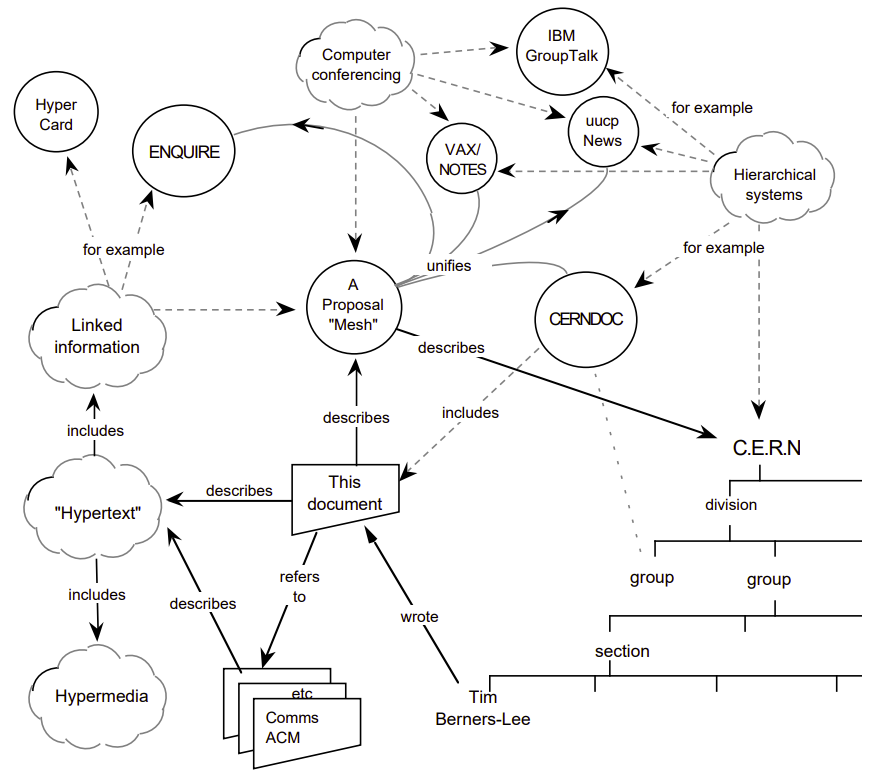In Thriving on Overload, in Chapter 2 on Framing, I describe how we can use concept frameworks to make sense of the world, filter information, build patterns, generate insight, and enhance decision-making.
In particular, visual frameworks can be very powerful ways of distilling and developing understanding. In the book I introduce a number of tools for framing concepts and ideas, including concept maps.
When Tim Berners-Lee wrote his original proposal for the World Wide Web in 1989, he included a concept map to help explain his exciting new idea, shown below.

A concept map in essence shows all of the composite concepts in a network layout, with the links annotated to describe the nature of their relationship.
The diagram is still complex but vastly easier to understand than describing it solely in a written document. Berners-Lee’s supervisor described the idea as exciting, showing he understood not just the concepts laid out in the diagram and proposal, but also their potential. No doubt creating the concept map helped Berners-Lee to clarify his own idea.
Next time you are trying to think about or communicate a complex idea, why not try doing it as a concept map? It will not only clarify your thoughts, it will also be extremely useful in filtering and assessing incoming information on its relevance and impact on your idea.
Header image: Francesco Sgarbossa, CC BY-SA 4.0 , via Wikimedia Commons




